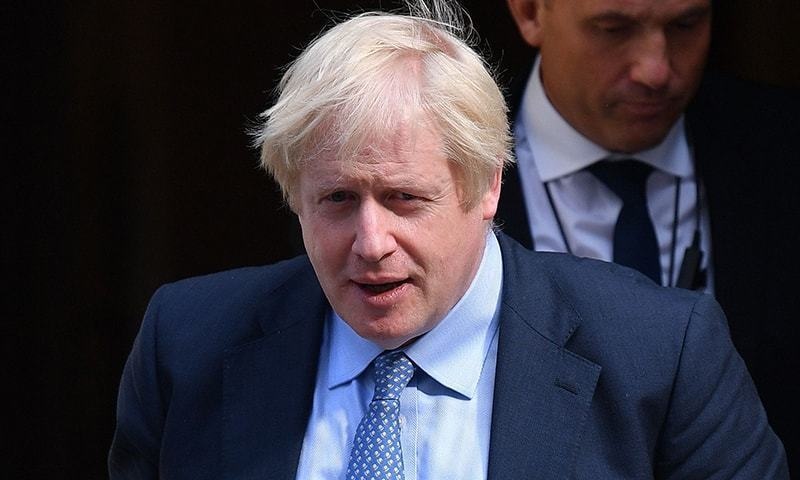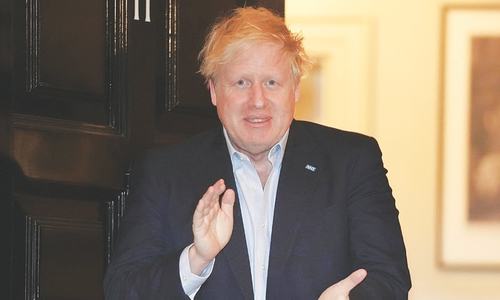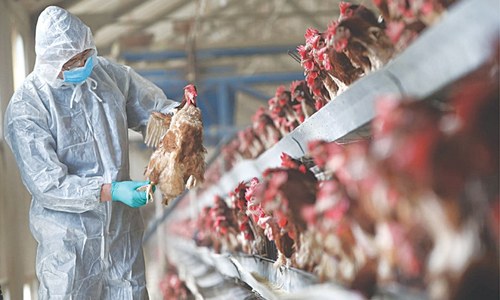British Prime Minister Boris Johnson was still in hospital on Monday suffering persistent coronavirus symptoms 10 days after testing positive for the virus, though Downing Street said he remained in charge of the government.
“The prime minister is still at hospital,” a British government source said. “He spent the night in hospital.”
Johnson, who had been isolating in Downing Street after testing positive last month, was taken to hospital on Sunday night because he still had a high temperature and his doctors felt he needed additional tests.
“On the advice of his doctor, the prime minister has tonight been admitted to hospital for tests,” his Downing Street office said in a statement on Sunday.
“This is a precautionary step, as the prime minister continues to have persistent symptoms of coronavirus ten days after testing positive for the virus,” the statement added.
Johnson, 55, on March 27 became the first leader of a major power to announce that he had tested positive. He went into isolation at an apartment in Downing Street and said on Friday he was staying there as he still had a high temperature.
Downing Street underscored that this was not an emergency admission and that Johnson remained in charge of the government.
Foreign Secretary Dominic Raab will chair the government's emergency Covid-19 meeting on Monday, a source said.
'We'll meet again'
The Downing Street announcement came as the 93-year-old queen offered a message of hope to everyone affected by the global pandemic, which has seen more than 1.2 million cases and more than 68,000 deaths.
Britain currently has 47,806 confirmed hospital cases and 4,934 deaths. The monarch's eldest son, heir to the throne Prince Charles, has tested positive after displaying mild symptoms.
In only her fourth address at a time of crisis in her 68-year reign, the queen said the outbreak could be defeated by a collective effort in a “common endeavour”.
“We will succeed — and that success will belong to every one of us,” she said in a speech recorded at Windsor Castle, west of London, where she moved as a precaution on March 19.
Thanking healthcare staff and key workers, and praising the community response to the outbreak, the queen said people in Britain and around the world could feel proud.
“Together we are tackling this disease, and I want to reassure you that if we remain united and resolute, then we will overcome it,” she added.
She drew on her experience of World War II, when she and her sister princess Margaret were evacuated to Windsor as London was bombed, drawing parallels with people forced apart by the virus.
In particular, she referenced British wartime singer Vera Lynn, whose song 'We'll Meet Again' became an anthem for service personnel fighting abroad, far from their loved ones.
“We should take comfort that while we may have more still to endure, better days will return: We will be with our friends again; we will be with our families again; we will meet again.”

















































